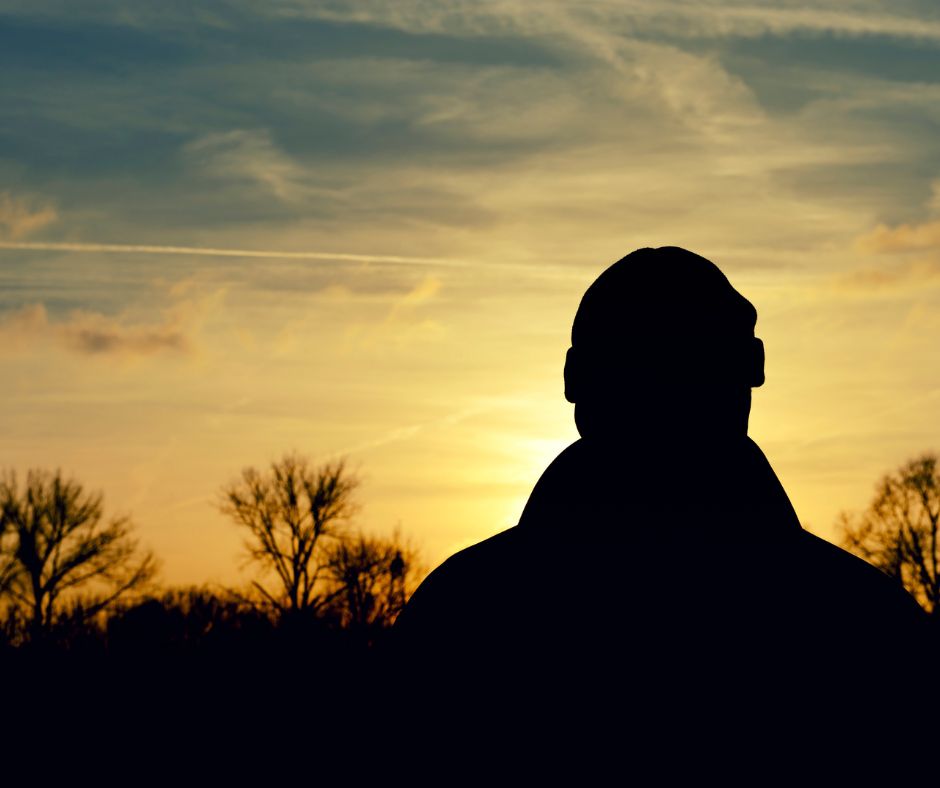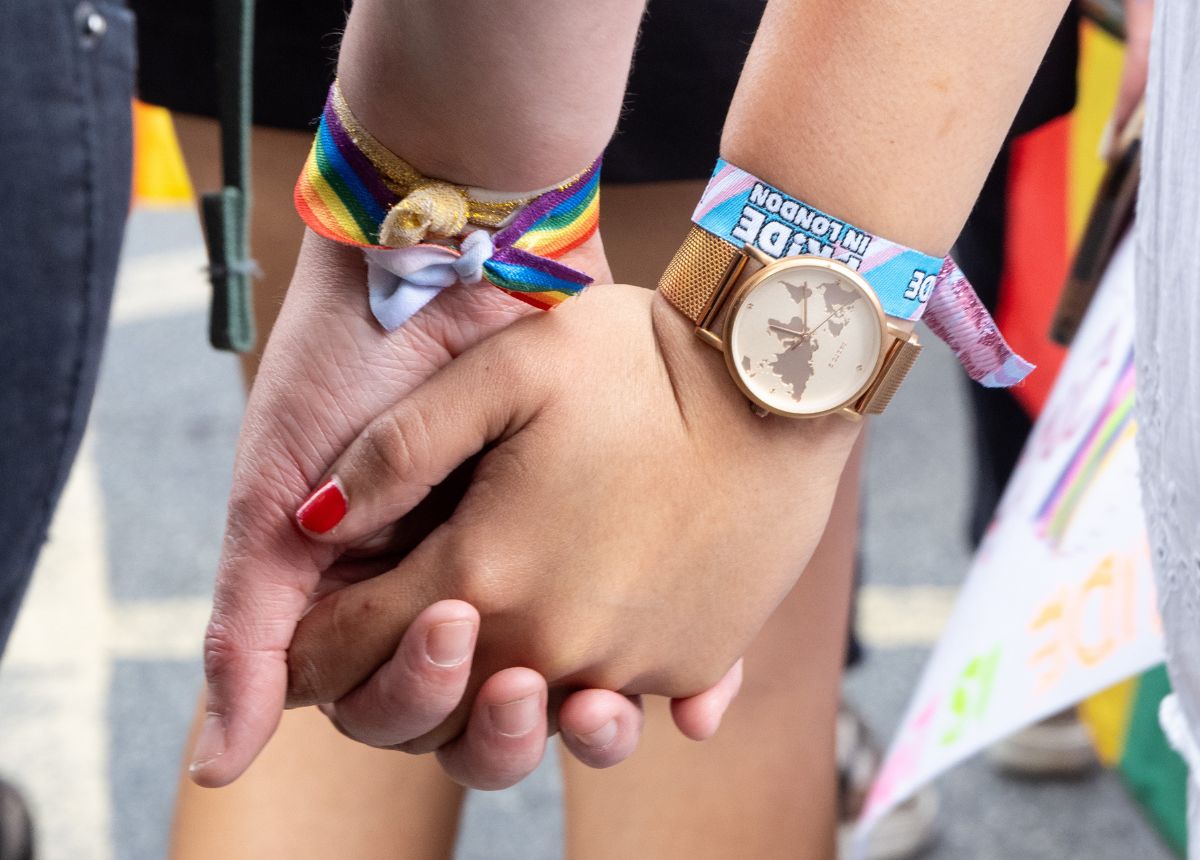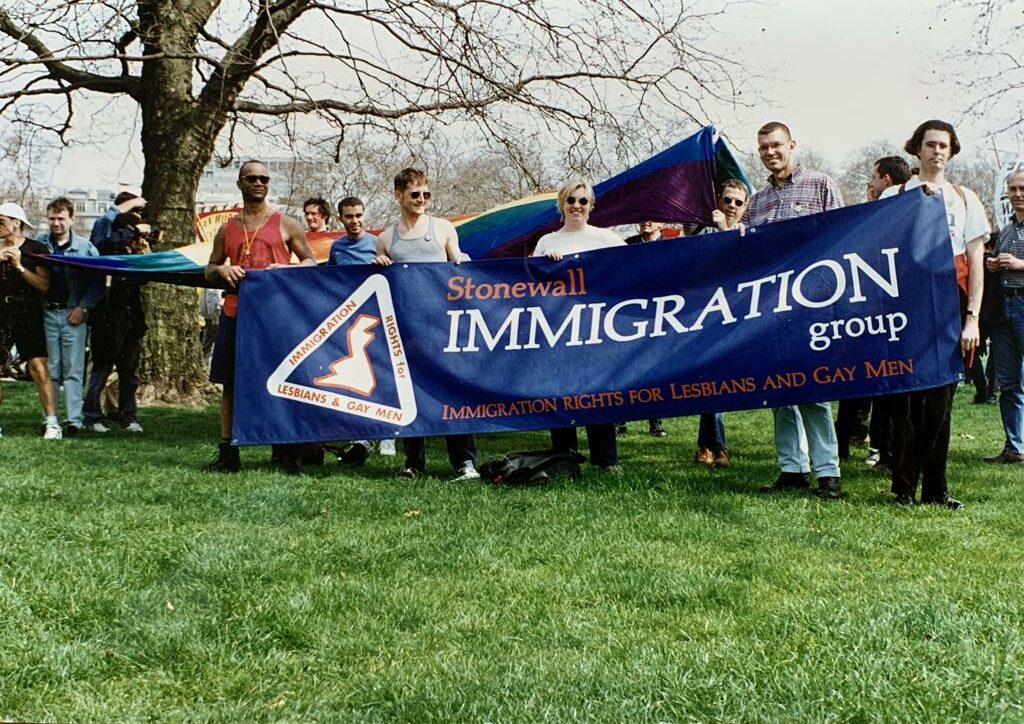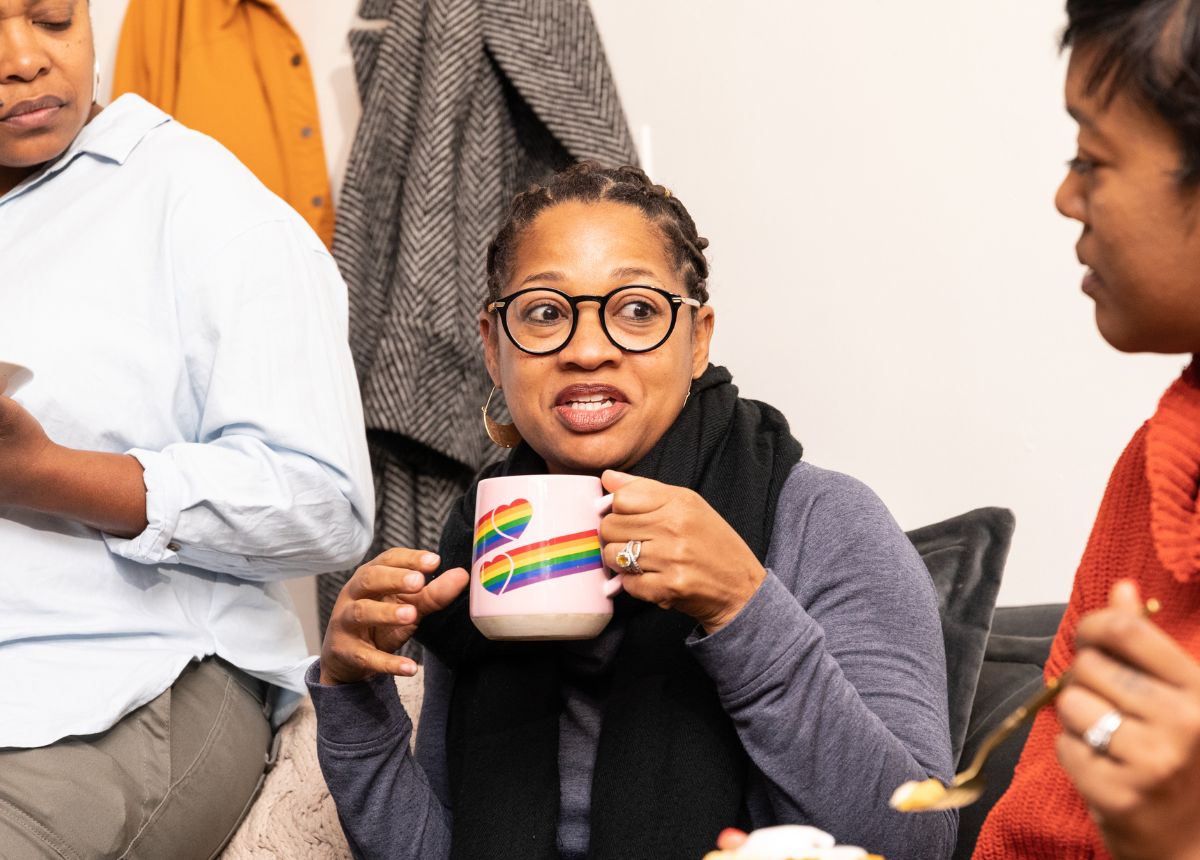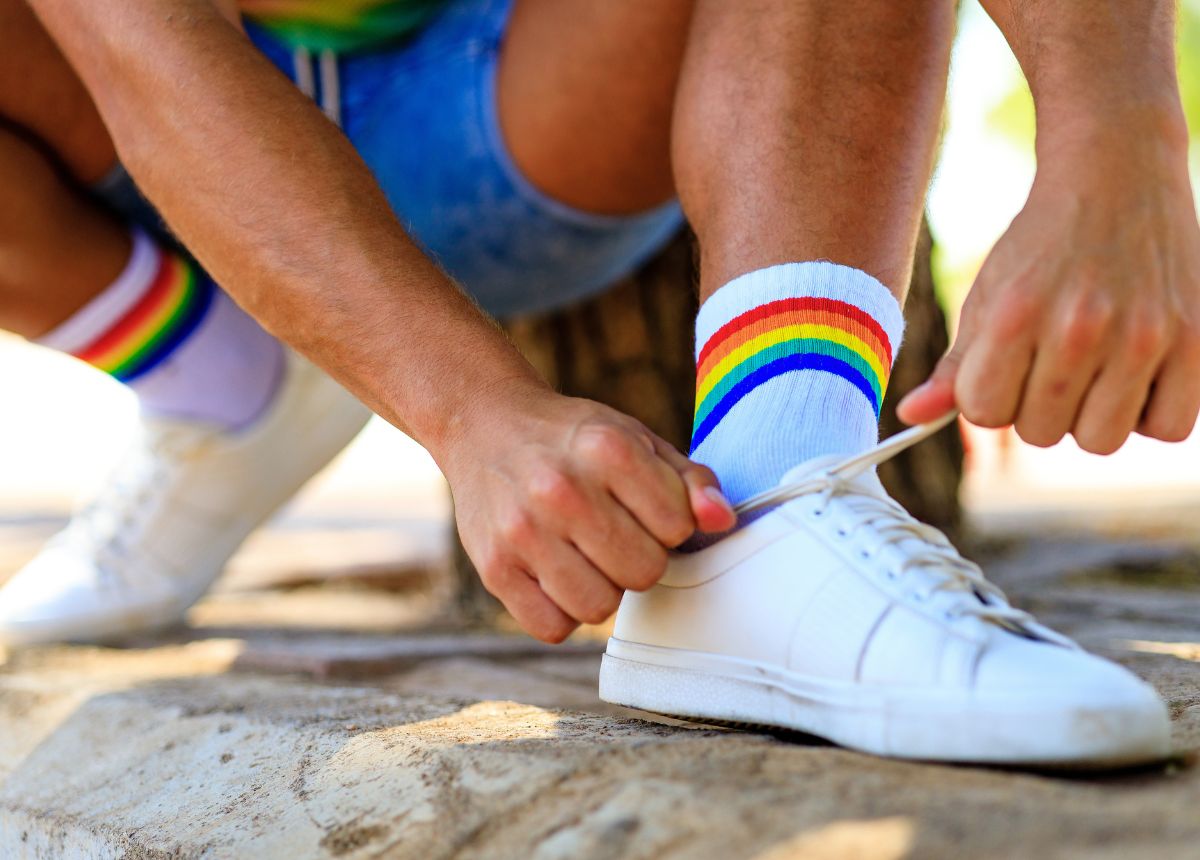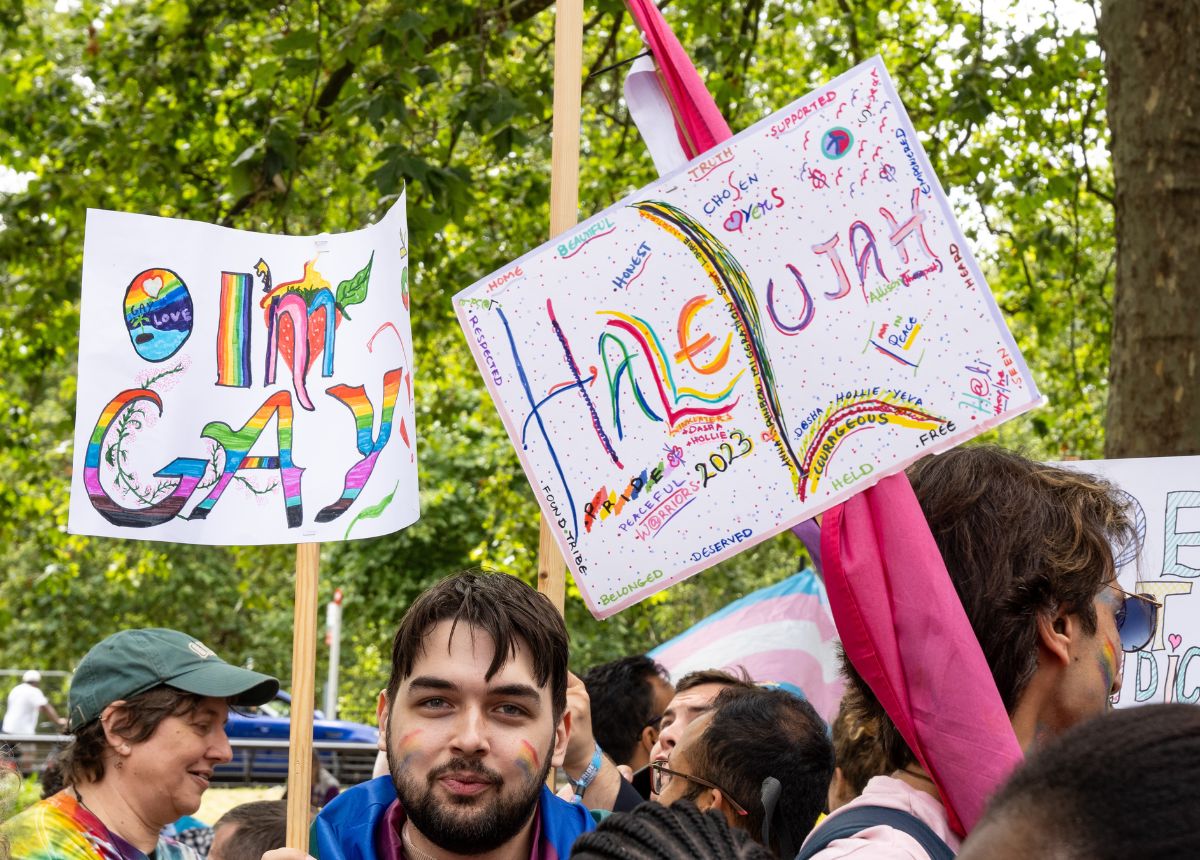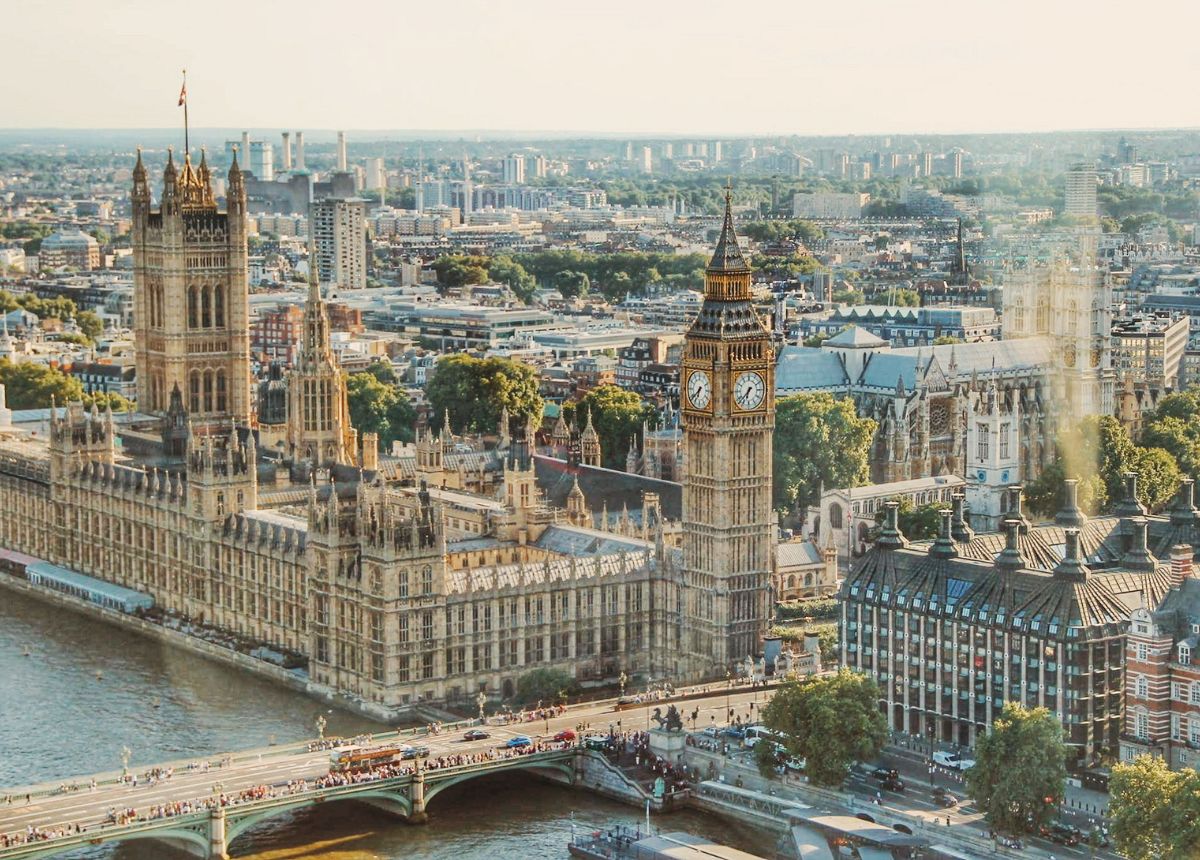Letter to the PM: Respect the lives of LGBTQI+ people and women seeking asylum in the UK
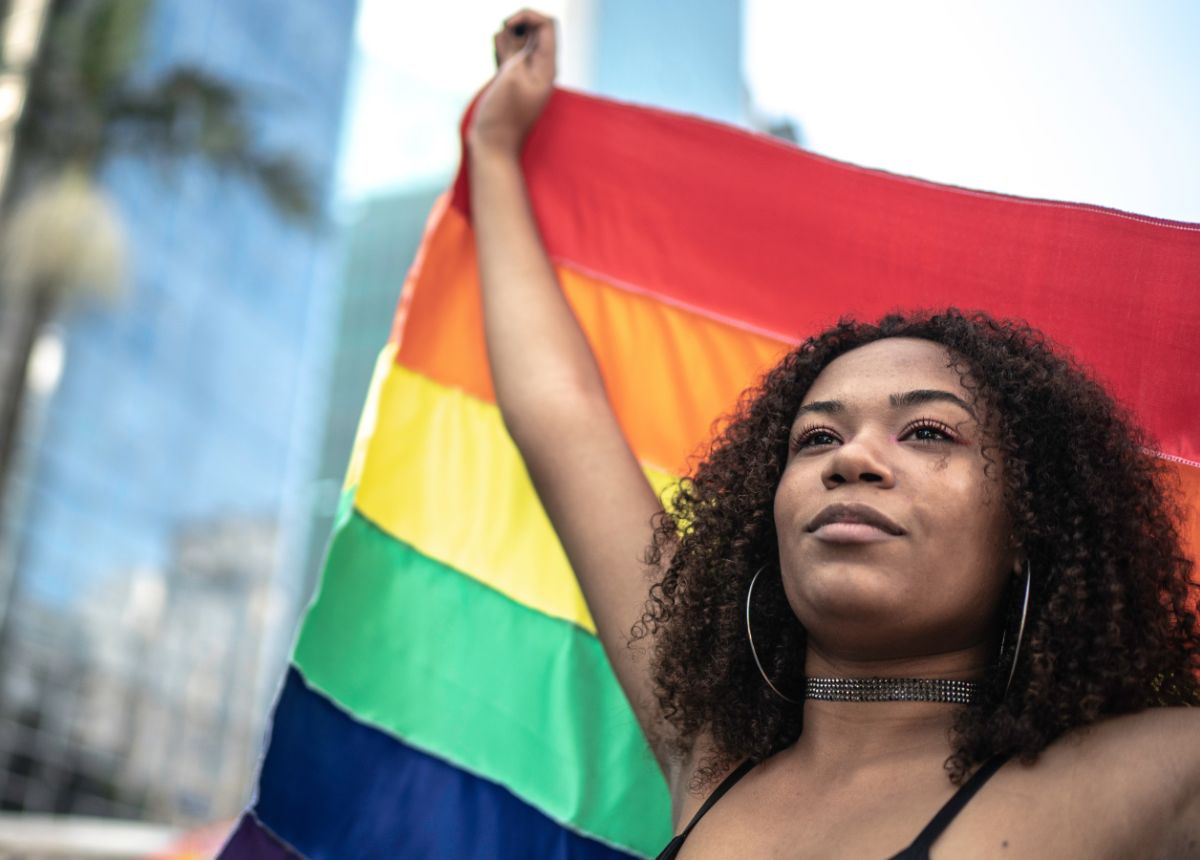
Together with 245 other organisations, we’ve joined Stonewall in a powerful display of solidarity, following comments by the Home Secretary, Suella Braverman, last week.
The coalition, including organisations such as Amnesty, Oxfam, End Violence Against Women Coalition, Refugee Council and Women For Refugee Women, has written to UK Prime Minister, Rishi Sunak, to reaffirm the UK’s commitment to protecting LGBTQI+ people and women around the world.
Many of the signatories work daily with LGBTQI+ and women refugees, and ‘bear witness to their scars from being persecuted’.
The letter rejects Suella Braverman’s claim that LGBTQI+ people and women are misusing their identities to make false claims, and speaks of regret that the Home Secretary’s selective use of stats that ‘have nothing to do with genuine concern or respect for international law, refugees or their protection.’
Robbie de Santos, Director of External Affairs at Stonewall, said: “We all deserve a government with the compassion and will to protect the most vulnerable in society. Not only is the incumbent UK Government failing LGBTQ+ people domestically, with inaction on rising hate crime, but they are also failing the international community by indicated their disdain for international law – in the process bringing great shame on party and country.”
Steve Valdez-Symonds, Refugee and Migrant Rights Director at Amnesty International UK, said: “The Home Secretary’s verbal attack on the rights of LGBTQ+ and women refugees is deplorable. Not only did she once again stir utterly false prejudices against people seeking asylum, she also targeted refugees who often continue to face grave insecurity, hostility and violence – even long after escaping persecution and conflict. Ministers must stop their constant scapegoating and put their energy into repairing the utter wreckage they have made of the asylum system.”
Alphonsine Kabagado, Director, Women For Refugee Women, said: “We strongly condemn Suella Braverman’s speech last week – which was dangerous, inflammatory and racist. Not only did her claims stoke hatred and fear, they were untrue. To be granted asylum in the UK, you must prove a well-founded fear of persecution. Her suggestion that people lie about their identities to make false claims for protection, or that it is possible to be granted asylum based on discrimination alone, is unfounded. We know from our work supporting refugee and asylum-seeking women, including LGBTQ+ women, that many face persecution including torture, gender-based violence, sexual violence, trafficking and rape.
Braverman’s speech was also hypocritical. The Government has repeatedly stated its commitment to tackling violence against women and supporting survivors of such violence, as well as to supporting LGBTQ+ people. Yet when it comes to women or LGBTQ+ people seeking asylum in the UK, it seems these commitments do not apply. Instead of whipping up hatred, fear, and division against women and LGBTQ+ people seeking safety, the Government should treat them with compassion and kindness. How we treat people is who we are; the Government’s hostility does not represent us.”
Enver Solomon, CEO of the Refugee Council, said: “Turning our backs on LGBTQ+ people and suggesting they are undeserving of a fair hearing in the asylum system is immoral.
Of the small number of people who come to the UK claiming asylum based on their sexual orientation, the majority are recognised as having a well-founded fear of persecution and are given refugee protection. We know from our work how traumatised they often are – what they need is support to restart their lives in safety, rather than hostility and disbelief.
The Refugee Convention’s fundamental purpose is to offer protection to those who need it, based on shared global values of humanity and fairness. Abandoning these values does not reflect who we are as a country.”
Leila Zadeh, CEO, Rainbow Migration, said: “Across the world there are LGBTQI+ people experiencing violence and persecution simply because of their sexual orientation or gender identity. Around 70 countries still criminalise same-sex relations, and in some places the picture is getting worse.
Many LGBTQI+ people that we support every day tell us how they faced life-threatening situations back home. For example, Olu, a lesbian from Nigeria had to run for her life when her husband found out she was a lesbian and nearly killed her, or Adams was violently attacked in the street on several occasions by members of his community in Ghana because he was bisexual.
We all want to live somewhere where we can be safe and live fulfilling lives and most of us welcome people who are fleeing for their lives. We ask that the PM gets in line with public sentiment and commits to the protection of the rights of LGBTQ+ people seeking safety in the UK.”
Brook House Inquiry findings: A gay man faced verbal homophobic abuse and was outed by staff in detention
The first public inquiry into immigration detention in the UK, released today, found evidence that a gay man from Morocco had received verbal homophobic abuse from staff while held in immigration detention.
The man told the Inquiry that “he did not feel detention was an environment where it was safe to be open about his sexuality” and that “he believed staff were hostile towards gay people”. The report details an incident where a member of staff at the Brook House immigration removal centre told him that he needed to change his clothes “because [he] looked gay” in front of other people in detention, which effectively outed him and caused him to feel unsafe in detention. The report found that the remark was “probably made with the express intention of humiliating” him, and that the officer was likely to know “that his specific choice of words could have placed [the gay man] at risk of harm”.
“These findings show, once again, how dangerous immigration detention is for LGBTQI+ people”, said Leila Zadeh, Executive Director at Rainbow Migration, and continued “LGBTQI+ people face high levels of harassment, abuse and violence from others who are detained or, as this Inquiry shows, even staff”. On top of that, facing abuse in detention can retraumatise LGBTQI+ people, as many will have fled persecution and are already trying to cope with experiences of trauma from their past.
The case of mistreatment detailed above is one among a total of 19 incidents of mistreatment that were found by the Brook House inquiry in just a five-month period between April and August 2017. The report also catalogued a deeply troubling list of issues at the centre, including a dysfunctional safeguarding system, excessive and inappropriate use of force and the use of racist and abusive language towards people detained.
Under the recently passed Illegal Migration Act, this government plans to increase the use of detention, which will put LGBTQI+ people seeking protection in even more dangerous situations.
Recent UNHCR report findings suggest that supporting people who might otherwise be detained to navigate the asylum and immigration system in the community instead is better for their mental health and wellbeing, costs less than detaining them, and does not affect compliance with Home Office directives.
“This government urgently needs to end the use of immigration detention and instead invest in tried and tested community-based approaches that do not carry the same human cost”, said Leila Zadeh.
Further findings about the report have been reported by The Guardian and The Independent.
More Albanian LGB+ people granted asylum despite country considered ‘safe‘ under new Illegal Migration Act
New statistics show that the number of people from Albania that were recognised[1] as being at risk of persecution due to their sexual orientation in the UK in 2022 more than doubled compared to 2021, it went up from five to thirteen people
Albania is one of the countries deemed ‘safe’ under the recently passed Illegal Migration Act. “By granting asylum to LGB Albanians, this government is acknowledging that Albania is a dangerous country for the community, where they can face life-threatening situations”, said Leila Zadeh, Executive Director at Rainbow Migration, and added, “However, when the Illegal Migration Act fully comes into force, LGBTQI+ people could be sent to Albania or any other of the 56 countries that this government considers safe”.
Hamez, a gay man who fled to the UK from Albania explained last year that: “It was very scary to go back to Albania. My family were pressuring me to get married, and when my parents found out that I was gay, my father chased me out of the house with an axe. I had brought shame on my family, and my father began to be physically abusive. I was hiding in the mountains, trying to find a way to escape my village. It is common for people to get beaten up or killed in my country if someone is found out to be gay.”
The statistics also show that the number of LGB people from Nigeria and Ghana that were granted asylum remained steady, 52 and 9 respectively, two countries that are also considered ‘safe’ (in respect of men) under the Illegal Migration Act.
More LGB Ugandans seeking refuge in the UK
According to the statistics, up to 54% of the applications received from Ugandan nationals were LGB applications. Over the last year and a half, we’ve supported more than 20 Ugandan LGBTQI+ people to seek protection here and we are concerned that the discriminatory law that was passed in Uganda a few months ago, under which LGBTQI+ people can face life in prison or even the death penalty, will mean many more will have no choice but to flee Uganda.
The Illegal Migration Act will make it almost impossible for LGBTQI+ Ugandans to find safety in the UK. If they do, they could be detained and later sent to another dangerous country for LGBTQI+ people.
“The inhumane Illegal Migration act should never come into force. Instead, this government should focus on creating a compassionate and caring asylum system that treats people with kindness” said Leila Zadeh.
[1] The experimental statistics show the number of asylum claims where sexual orientation was raised as a basis, or part of the basis, of the claim.
Celebrating 30 years together!
This year marks a significant milestone for us as we proudly celebrate three decades of supporting LGBTQI+ people through the immigration and asylum system.
In the 90s, a group of lesbian, gay and bisexual couples, and their lawyers, campaigned to make it possible for the partner of a British citizen in a same sex relationship to remain in the UK. This was how Rainbow Migration was originally formed.
Since then, we’ve continued to campaign for the right of LGBTQI+ people to rebuild their lives free from homophobia, biphobia and/or transphobia here in the UK.
Learn more about the origins of Rainbow Migration, have a look through our historic archive and read the stories of those who have been involved with us throughout the years!
Tell your MP about alternatives to detention
We all know that immigration detention is unjust and inhumane. Now the UN Refugee Agency has published evidence showing that a new compassionate approach could be a reality in the UK.
We need MPs to see this report.
The report covers two UK pilot projects where people were supported with their asylum or immigration cases in the community rather than being detained.
Compared to locking people up in detention, providing legal counselling and personalised support in the community was more humane and resulted in significant improvements in mental health and wellbeing.
At the same time, there was no evidence of reduced compliance with the Home Office and the projects were both cheaper and offered better value for money than detention. So why is this government doubling down and planning to open three new detention centres?
The harm that detention causes is unjustifiable. For LGBTQI+ people, being cut off from communities of support and subjected to discrimination and abuse inside can make it even worse.
Thank you for helping us spread the word that there is another way.
Our 30th anniversary fundraising challenge is here
**This challenge has now closed.**
We’re turning 30! This year, we’ve been supporting LGBTQI+ people through the asylum and immigration system for 30 years.
Celebrate with us and challenge yourself to complete 30 miles in 30 days during September. Run, walk, swim, cycle, or use a wheelchair or other adaptive equipment to cover 30 miles throughout the month and raise much needed funds to support LGBTQI+ people going through the asylum and immigration system.
LGBTQI+ people seeking asylum will not be safe on barges
Micro Rainbow and Rainbow Migration firmly condemn this government’s barbaric proposal to house people seeking asylum on barges.
We support Refugee Council’s open letter to Bibby Marine and agree that barges are unsuitable for housing people seeking asylum in the UK. Furthermore, the doubling of the capacity of the barge, and the movement restrictions placed on the people housed there resemble immigration detention, where LGBTQI+ people are particularly at risk of harm. The overcrowded accommodation and the restrictions on movement for the people living at the Bibby Stockholm will replicate many of the conditions of incarceration.
Housing people in prison-like conditions such as those proposed on the Bibby Stockholm risk further traumatising people who are seeking safety and protection. The risks of forced isolation and prison conditions is well known: it is a key facet of Australian border policy. This policy has a detrimental impact on both mental and physical health, and the UK Government knows this. The situation will be even more dire for LGBTQI+ people.
We know that LGBTQI+ people seeking asylum are particularly at risk of harm and can face serious issues when forced to live in overcrowded conditions. Like in detention, they are likely to experience discrimination and harassment from other people seeking asylum who can hold LGBTQI-phobic views. Trans people can be at even greater risk of abuse and may be forced to hide their gender identity.
Rainbow Migration’s 2023 pilot study into LGBTQI+ experiences of detention underlines the fact that detention-like conditions are unsafe for LGBTQI+ people. It is clear that the conditions on the Bibby Stockholm will differ from immigration detention in name only, and are likely to put LGBTQI+ people at increased risk of harm.
Instead, a holistic and community-based response is better suited to safeguarding LGBTQI+ people seeking asylum. Micro Rainbow’s tested and successful holistic approach to integration incorporates housing, social-inclusion and moving-on support, and it is a viable and empathetic alternative. Micro Rainbow’s housing is safe, inclusive for LGBTQI+ people, and integrated into the community. People seeking asylum staying in Micro Rainbow housing are not only safe to express their LGBTQI+ identity but also better able to establish community links and networks of support. They can openly and safely contribute to their local communities.
Micro Rainbow and Rainbow Migration ask that this government commits to the safeguarding of LGBTQI+ people seeking asylum, and guarantees that LGBTQI+ people will not be housed on barges.
Thank you for speaking out
This week the government’s cruel Refugee Ban Bill was passed by Parliament and became law. We are angry and disappointed, but we won’t stop fighting to make the UK a safe and welcoming place for LGBTQI+ people seeking asylum.
This law will deny the right to asylum to thousands of people who need our protection. It will dramatically increase the government’s powers to lock people up while making it even harder to challenge their detention. And it will put LGBTQI+ lives at risk by allowing people to be sent to countries that are not safe for the LGBTQI+ community.
We wanted to say thanks to each and every one of you who took the time to write to your MP last weekend. Because of you, the need to protect LGBTQI+ people from being sent to countries where they would be at risk of harm was raised by MPs throughout the debate. We were pleased to see the amendment drew support across political parties.
We are sad to say that we could not change the bill on this occasion, but thank you for speaking out for LGBTQI+ people and showing that whatever this government says, these cruel laws do not represent us.
How the UK government is turning a blind eye to the discrimination that LGBTQ+ people seeking asylum will face if sent to Rwanda
By *Innocent Uwimana, a gay man from Rwanda who migrated to the UK around 20 years ago. This article was originally published by Pink News.
If the Refugee Ban Bill that is currently going through Parliament is passed into law, LGBTQI+ people who come to the UK seeking protection could be sent to countries which are not safe for them, such as Rwanda.
I had the chance to speak to a group of LGBTQ+ Rwandans in the country, who told me about the discrimination they have faced their entire lives because of their sexual orientation and/or gender identity.
During an anonymous meeting online, they expressed their concerns about their lives and explained the risks LGBTQI+ people face in Rwanda.
“We don’t understand how the UK government would send LGBTQ+ people here knowing that they will face discrimination. Though the country’s recent human rights advances have been ‘enormous’, not all Rwandans are able to enjoy them equally
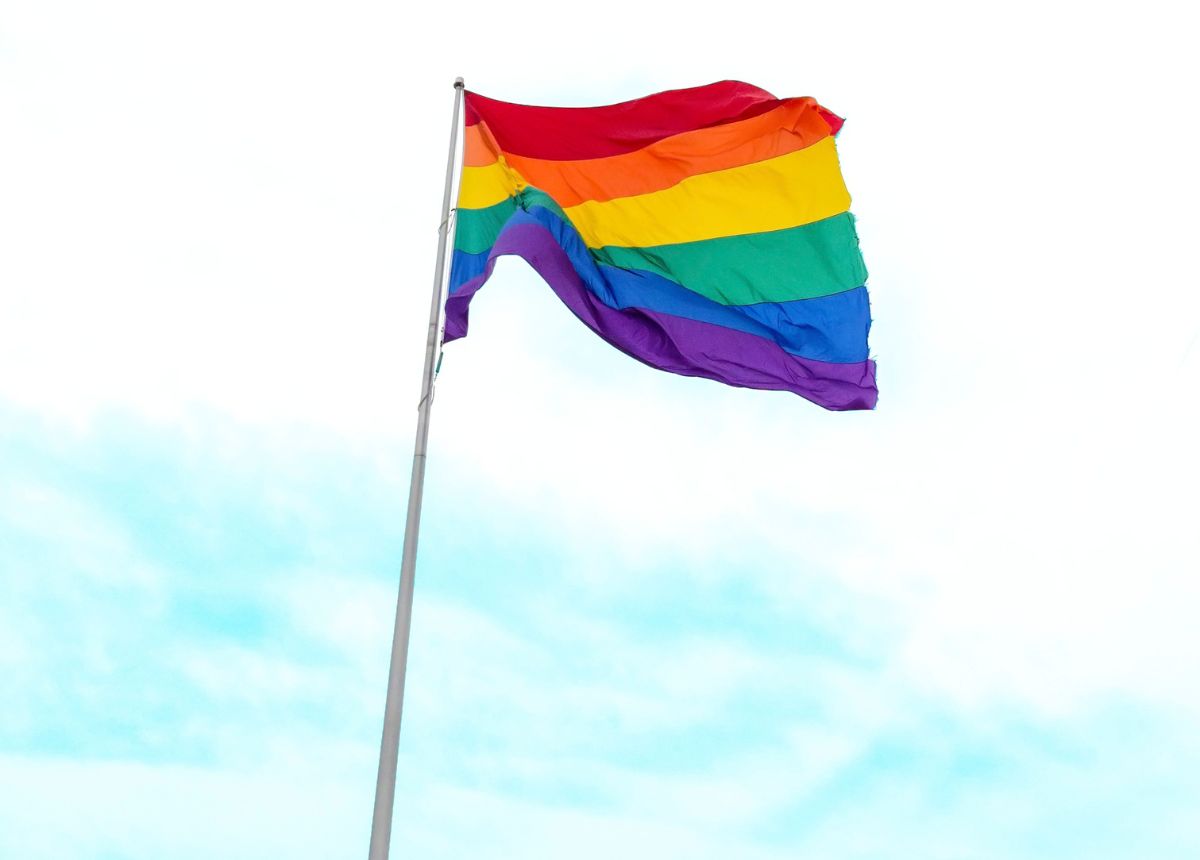
Indeed, Rwanda is one of the few African countries that does not overtly criminalise gay sex, and the country is a signatory to the UN declaration condemning violence against LGBTQ+ people. However, same-sex marriage is prohibited and LGBTQ+ people are not protected from discrimination by any specific legislation.
LGBTQ+ people face stigmatisation and abuse in Rwanda every day, and there are many cultural and religious factors which fuel hatred against LGBTQI+ people in Rwandan society.”
The people in the group said that religious and cultural arguments are often used to heavily discriminate against anyone perceived to be a member of the LGBTQ+ community.
Religion as an argument to discriminate against LGBTQ+ people.
Religion is the most common argument people in Rwanda use against LGBTQI+ people. Because of the predominance of Christianity in Rwanda, churches have been particularly vocal in fuelling discrimination against Rwandan LGBTQ+ people.
Leaders of the Pentecostal and Catholic churches have embraced and been keen to demonstrate bigoted attitudes towards the LGBTQI+ population.
In addition, many political and social influencers in Rwanda frequently utilise overtly religious justifications to condemn homosexuality, calling it not only “un-Rwandan,” but also “sacrilegious”.
The UK government needs to understand that Rwandans’ conceptions of the world are substantially shaped by their religious beliefs, and that religious ideas heavily shape their attitudes and behaviours.
Hostility on the grounds of culture
On the other hand, some Rwandan leaders, including political and religious leaders, as well as social media influencers, justify discrimination against LGBTQ+ people on the grounds of culture. They claim that homosexuality and non-heteronormative gender identities are not part of the African culture and that they were brought to Africa by Western countries (especially the US and European countries) so as to impose their cultures on Africa.
Some also claim that Western countries intend to wipe out the African population by promoting homosexuality and discouraging people from heterosexual relationships in which they can have children.
In Rwanda, homophobia has evolved into a rallying cry that mobilises the masses by urging them to guard themselves against westernisation and to defend their own culture.
However, there is well documented historical evidence of same sex relationships and gender expression variance in many places in Africa, including Rwanda.
For example, in Rwanda ‘Cyabakobwa’ (men behaving and dressing as women) and ‘Ibishebago’ (women behaving and dressing as men) were well tolerated and lived in peace in the communities in pre-colonial times.
Yet unfortunately this is no longer the case, and LGBTQ+ individuals must hide who they are, or are forced to flee to other nations.
The controversial cases of a Rwandan fashion star and a social media influencer
The group highlighted the recent case of Moses Turahirwa, a Rwandan fashion star, to illustrate the hostility against LGBTQI+ people in the country.
The Rwanda Investigation Bureau (RIB) arrested this well-known Rwandan fashion designer on Thursday, April 27 in Kigali. The day before, he uploaded a photo to social media joking about the fact that his passport’s “gender” field had been changed from “M” to “F,” meaning male to female. “Finally, officially a woman on my identity card”, said the artist, who is a member of the LGBTQ+ community.
However, the joke sparked lots of hate speech and discrimination against people perceived to be part of the LGBTQ+ community on the grounds of religious and culture arguments. Many people have expressed that LGBTQ+ people should be killed, and the authorities have turned a blind eye to the situation.
The government responded by arresting him. On top of being accused of forging official documents, he was also accused of other crimes and the investigation will continue while he remains in custody.
Hostility against LGBTQ+ people in Rwanda can also be illustrated by the recent case of a famous DJ and social media influencer who has been accused of being a lesbian. Despite her denying this, many religious leaders and social media influencers have attacked her on the media claiming that she should be arrested or beaten up.
“We hope the UK government will hear our voice”
Most LGBTQI+ people want to leave Rwanda. They want to live in a place where they can be free and themselves. So why would the UK government think it is safe to send LGBTQ+ people there?
The group of people I chatted to were surprised that a country like the UK, previously known as respecting human rights, is now consciously planning to send LGBTQI+ people to a place where it is known they will face stigmatisation and discrimination.
When asked what they hope for from the conversation, the group said, “we hope that the UK government will hear our voice and not put other people in a situation so many others want to get out of. “
*The name of the author has been changed to protect his identity.
MPs raise concerns about this government's plans to detain and send LGBTQI+ people to Rwanda
A new report on equality and the UK asylum process by the Women and Equalities Committee highlights that new legislation could put LGBTQI+ people seeking asylum at greater risk of harm.
Committee Chair, Caroline Nokes MP said: “We were disturbed by the Home Office’s inadequate management of risks of harm to asylum seekers with protected characteristics, including women, LGBT people, children and disabled people. Alarmingly, these risks will increase under the Government’s recent and planned reforms.”
Immigration detention and Rwanda
MPs are “deeply concerned that the current and planned reforms risk turning back the clock on policies intended to ensure detention is used only as a last resort, and to reduce the risks of harm to vulnerable people.” If the Refugee Ban Bill is passed into law, more people could be detained for longer periods of time. This would include LGBTQI+ people, who in detention face bullying, harassment and abuse, with serious consequences for their mental health.
The report recommends this government set out how it plans to mitigate the risks of harm to LGBTQI+ people in detention, and to collect and monitor data on where LGBTQI+ people are detained and for how long. At the moment, the government does not keep track of LGBTQI+ people in detention, which means that they cannot monitor and reduce the harm of detention to LGBTQI+ people.
MPs also expressed their worries about this government’s plans to send LGBTQI+ people to Rwanda and urged it to “set out how it intends to monitor and ensure those removed to Rwanda do not suffer harm or experience discrimination in that country”.
At Rainbow Migration, we have called out Rwanda as a country where LGBTQI+ people are subjected to discrimination, violence and abuse. The situation for LGBTQI+ people in Rwanda is so poor that it LGBTQI+ Rwandans have sought asylum in the UK.
“This report, for which Rainbow Migration gave oral and written evidence, is sending a very clear message to this government. The inhumane policies towards people seeking asylum in the UK have to stop immediately. This government’s legislation will put LGBTQI+ people seeking protection in dangerous situations, by detaining them in greater numbers and sending them to countries where they could face discrimination and violence”, said Leila Zadeh, Executive Director at Rainbow Migration, “instead, this government needs to focus on creating a compassionate and caring asylum system that treats people with kindness”.
Dangerous accommodation arrangements for LGBTQI+ people
The report also highlights that new contingency accommodation, such as military barracks and barges, being used by this government to house people wanting to rebuild their lives in the UK, is “unacceptable from both safeguarding and equalities perspective”, as it puts LGBTQI+ people at heightened risk of hate crime.
Leila Zadeh gave examples of the harassment and abuse experienced by LGBTQI+ people in government-provided accommodation. She explained that in the case of one man in military barracks, he was “ harassed by the others there, and there was no private space—the showers were communal, and they were sleeping in dorms, effectively. We worked very hard with other partner NGOs to try to get this person out but, to our knowledge, vulnerable people are being placed in accommodation like barracks and other forms of contingency accommodation which are completely unsuitable.
It’s not too late for the Prime Minister to stop this. Add your name to show the Refugee Ban Bill does not represent us.

